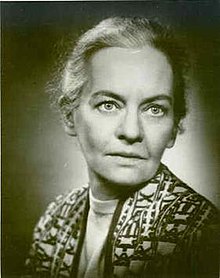 |
| Harriet Simpson Arnow |
I just love the annual Harriet Simpson
Arnow Conference on Appalachian Literature and Culture held at and
presented by Somerset Community College. It gives me a chance to be
in the company of some real writers and people who appreciate the
art. They have some speakers there whose words fall off their lips
in prose and fall gently onto the paper. My writing is not like
that. I am so impressed by the way that a simple act of seeing or
hearing can be described in its entirety so that a visual
impression
is left on the brain without the need of seeing it with one's eyes or
hearing it with one's ears. What it does to me is to remind me that
one lifetime is not enough to be able to learn the answers to my
questions or to take advantage of new insight. However, one is all
we have and if a portion of a lifetime is squandered then the
situation is dire indeed.
Writers see the world differently than
we do. It's almost like they are observers of the human condition
and, for the time that they are practicing their art, they float above
us in a kind of ethereal way. Am I waxing too poetic here? Maybe,
but I am impressed for real. I suppose that for the most part they
have lives just like the rest of us with bills and families. They
probably catch colds but they are very descriptive colds and unlike
the common colds that most of us catch where you just lie there and
suffer.
| Crystal Wilkinson |
I sat there with my friend Bill and
listened to Crystal Wilkinson speak and read from her book “The
Birds of Opulence.” The way she took common, everyday experiences
and wove them into a tapestry was like having my eyes opened to the
vivid mental imagery of those mundane happenings such as one would
find in a daily diary. It is revelatory that Ms. Wilkinson hails
from Casey County which
only serves to remind us that the gift can
fall anywhere. That the seed be strong enough to survive and be
nurtured to maturity seems to be the qualifying characteristic. Her
accomplishments are many and it does not reflect very well on me that
I had never heard of her.
I have been familiar with Gurney Norman
for decades largely due to his novel “Divine Right's Trip” which
was serialized in “The Last Whole Earth Catalogue.” It was
required reading for my generation so Mr. Norman is well known in
Kentucky. He has written many other books about life and adventure
in the Appalachian Mountains and he ability to spin a yarn is second
to no one. He did,
 |
| Gurney Norman |
Up next was Silas House who everyone in
these parts has heard of. He is a very accomplished novelist. He
also is from neighboring Laurel County and spent much of his life in
Leslie County which is the home of my Mother so I am a bit familiar
with the surroundings. He has been writer in residence at Eastern
Kentucky University and Lincoln Memorial University and writes about
rural life largely in the Appalachian Mountains. His description of
his requirements for writing and the
 |
| Silas House |
One of the things that each speaker
mentioned though was their love for the writing of Harriet Simpson
Arnow who was from Burnside and environs and possessed the will to
describe her life through the imaginary lives of others. She left
the homeplace and moved to Cincinnati and then on to Detroit where
she spent most of her life. Her most famous book was “The
Dollmaker” which she wrote in 1954. It bears mentioning that she
worked in the early 1930s for the Federal Writers Project of the WPA,
a government program established by President Roosevelt to help
combat the deep depression the nation was enduring. I mention this
because at this time our federal government is slashing funding for
the arts and humanities as if there is no longer any need for
replenishment of the soul.
Then my friend Bill and I sat for a
couple of hours just talking about literary stuff. Bill is one of
the most literate people that I have had the pleasure of meeting. He
can talk about fiction, music (jazz, blues, bluegrass) and speak with
authority on names that I've only seen mention of. One of the things
that I like about my friend Bill is that he can speak of musicians
and philosphers and then ask if I have read or heard some work to
which I almost uniformly reply “no” even though it is tempting to
lie about it every now and then. Fear of discovery causes me to
maintain my honesty which is poor reason indeed to be honest.
This is a great conference that is
hosted by Somerset Community College. It is good for our souls to
know that our own small world really has no boundaries. That
literature and music ties us to the larger world and that our own
Appalachian Mountains are incredibly rich with fodder for the
creation of fine works of art. When I am exposed to these artists I
am reminded how I have lived my own life far too engrossed in the
daily grind and anxious of tomorrow. Then I wonder how these writers
and musicians manage to deal with the daily grind and still listen to
their muse.
My Take is that we are surrounded by
fine writers, artists and musicians whose work is rarely seen or
heard. The local arts community is a flourishing one that should
have more avenues for exposure to the people.
No comments:
Post a Comment